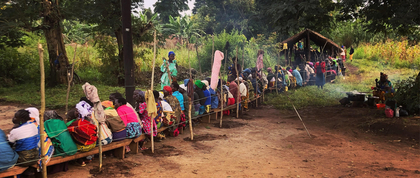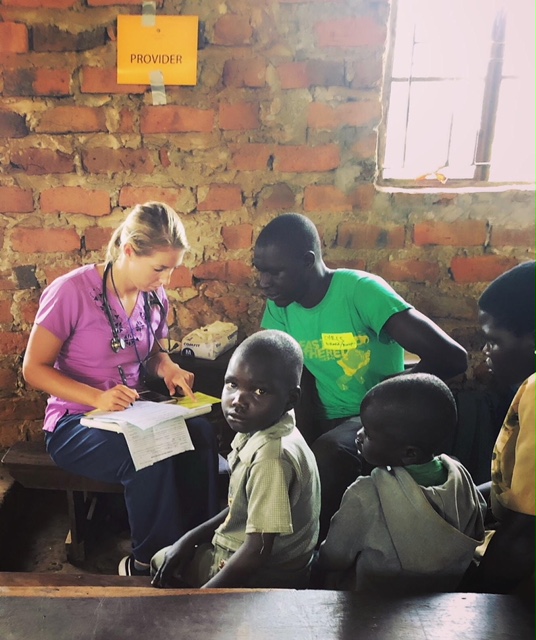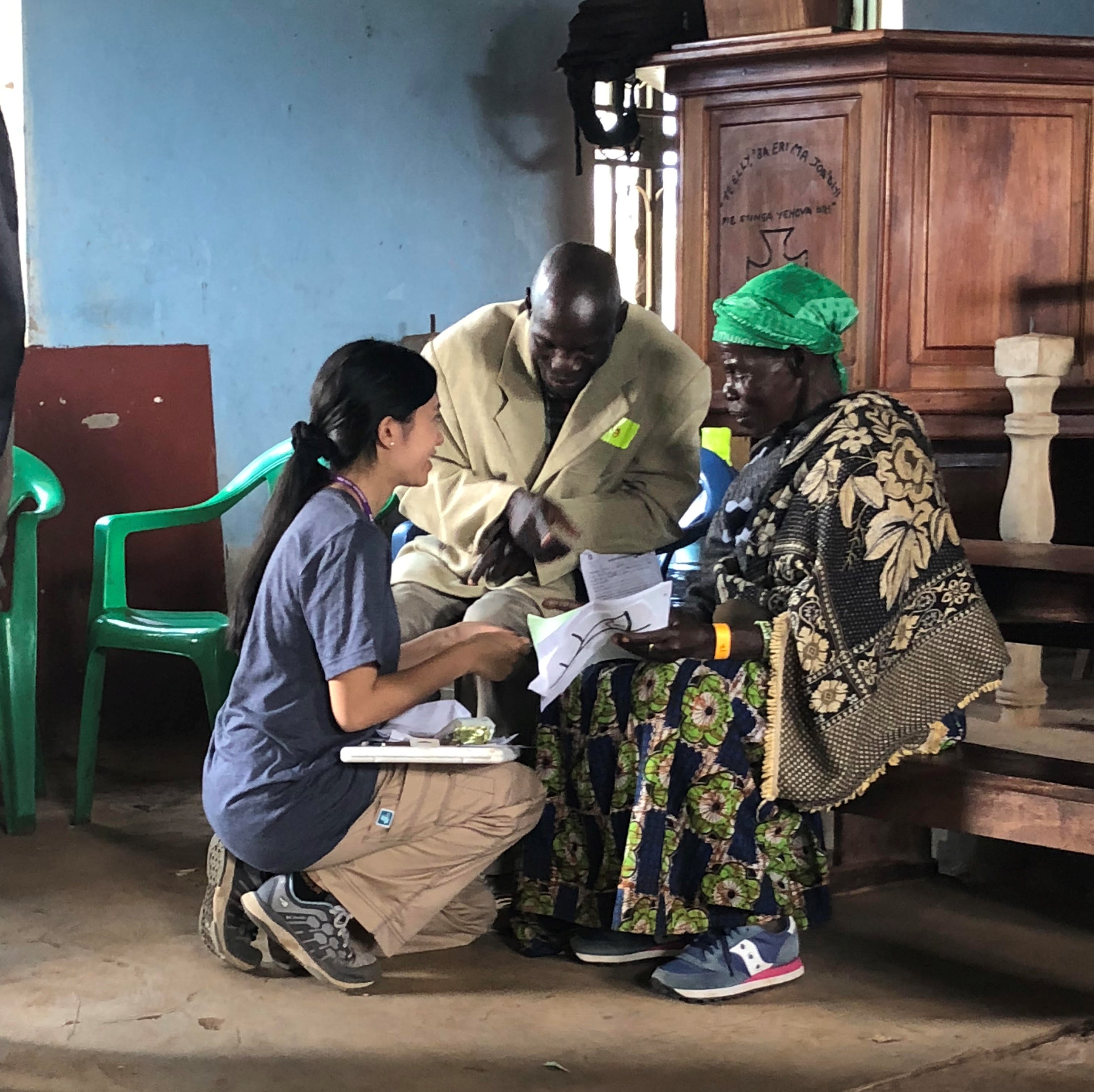
Research and Development in Hypertension Screening Guidelines and Treatment Protocols in Uganda
By: Sarah Bender, Felicity Duran, and Jason F. Arnold
This summer, OneWorld Health -- a nonprofit organization that provides high-quality, sustainable health care in developing countries -- recruited two MPH students from the global health concentration for a summer internship. As part of their internship, Sarah Bender and Felicity Duran traveled to Uganda to research and develop hypertension screening guidelines and treatment protocols at Masindi-Kitara Medical Center. Sarah and Felicity joined OneWorld Health’s medical outreach team, which consisted of 39 health professionals and other students from various disciplines including medicine, public health, nursing, pharmacy, and physical therapy. Although they may have come from different backgrounds and professions, the team of health care professionals who traveled together to Uganda shared a passion for serving others.

Picture Above: Sarah bender (far left) with local patients.
In Uganda, Sarah and Felicity were tasked with examining the current treatment guidelines for hypertension and comparing them to those recommended by the World Health Organization (WHO). The WHO estimates that hypertension causes approximately 13 percent of all deaths worldwide, with more prevalence in sub-Saharan African countries. In Uganda, for example, the prevalence for hypertension ranges from approximately 26 percent, but protocols for treatment are limited because of medicine's focus on treating communicable diseases.
The goal of the internship was to create hypertension screening and treatment protocols that OneWorld Health can use at the Masindi-Kitara Medical Center (MKMC). The team evaluated OneWorld Health's current treatment of hypertension in Uganda and evaluated the treatment in comparison to other guidelines and methods. Qualitative interviews were performed with key informants from MKMC, such as doctors and clinic directors. Patient surveys were also conducted.

Picture Above: Felicity Duran (far left) with local patients.
The remaining members of OneWorld Health’s medical team were divided into smaller units and assigned to different tasks throughout the clinic. For example, some volunteers worked in the exam room while others conducted surveys in the pharmacy and filled scripts with the help of interpreters. The public health interns from NYU College of Global Public Health (GPH) were able to interview patients with a current or pending diagnosis of hypertension while working in the clinic and provided pharmaceutical medication consultations with the guidance and supervision of OneWorld Health’s pharmacists.
Over the span of five days, OneWorld Health workers were able to treat approximately 900 patients in three different communities. According to Sarah Bender, “one of the most profound experiences was seeing firsthand the lack of basic healthcare available to these communities." Many patients, some well into their sixties and seventies, were seeing a doctor and having their blood pressure taken for the first time and many waited in line overnight outside the clinic to ensure they received a wristband to be seen. In all, OneWorld Health workers were only able to treat one quarter of the people wishing to be seen. However, despite their many hardships, the students reported that the Ugandan people were warm, welcoming, and grateful for the services provided. According to the students, “there was an undeniable connection between the Ugandan people and the team members, despite lingual and cultural barriers.”
The poverty and hardships faced by many African communities can be difficult for visitors to witness and are often incomprehensible for people coming the United States. One of the students expressed that "it is often discouraging for public health professionals to feel as if one can only impact a narrow fraction of those in need of help. However, the inability to solve all the problems of a region with one project or week of outreach is a challenge that is inevitable for the public health community."
The students who participated in the internship reported that they would like to return to Uganda. One student said, “hopefully our project can create change in the Masindi community and possibly impact other similar communities. OneWorld Health's presence in the region will continue to provide motivation for many."
For more information about OneWorld Health please visit https://www.oneworldhealth.com/. Students interested in public health internship opportunities with OneWorld Health should contact Kiera Bloch, GPH global health program administrator at kiera.bloch@nyu.edu
Acknowledgements: The authors appreciate editorial assistance on an earlier draft of this article from Kiera Bloch and Rebecca Newbold.